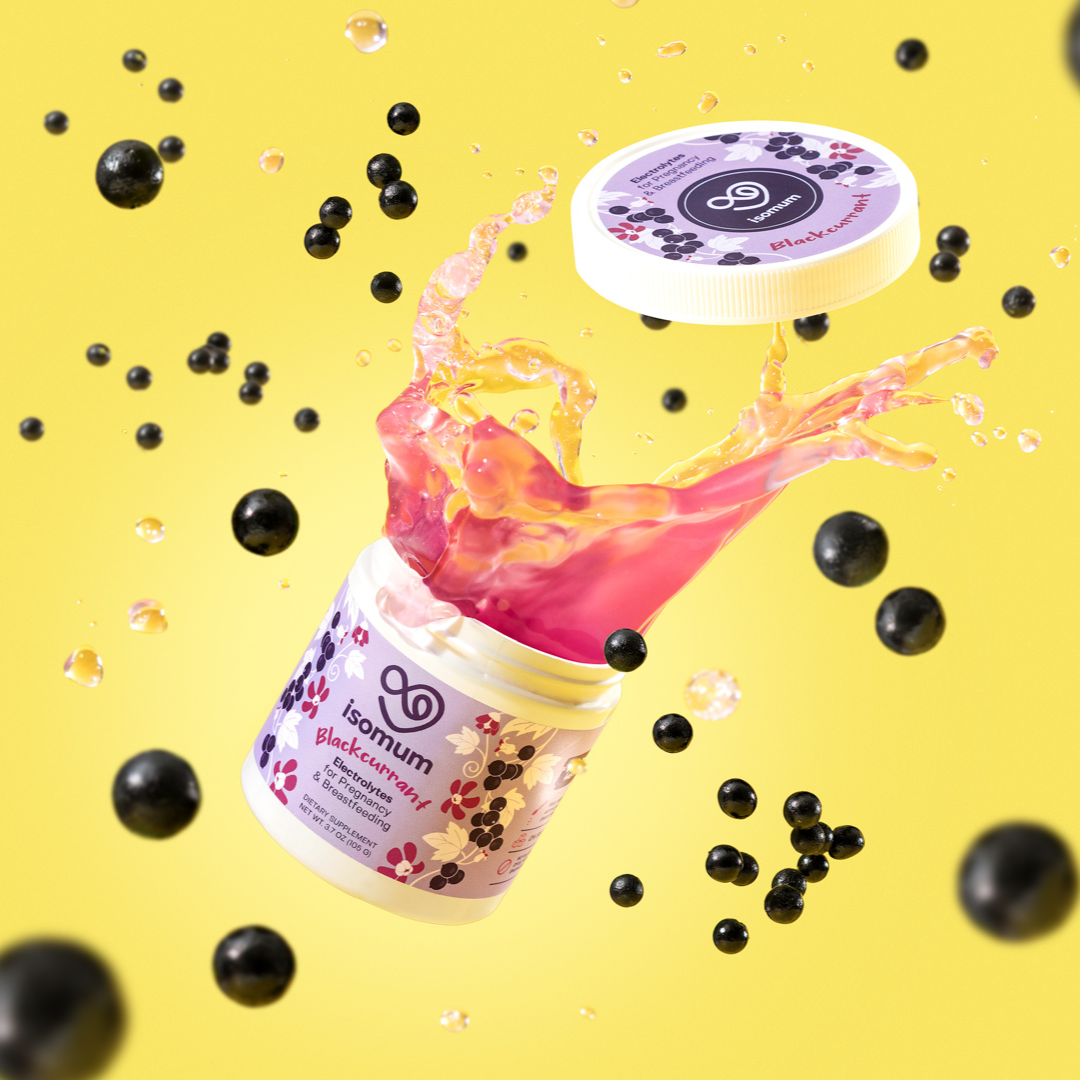Written by Dr. Nazeli Gevorgyan
Pregnancy is a beautiful and, at the same time, responsible period of life. Arming yourself with knowledge about the small things that can make a big contribution to your and your baby’s health can go a long way in improving the overall pregnancy-to-motherhood experience.
Studies show 1that consuming enough water and maintaining fluid and electrolyte balance during pregnancy may affect baby growth and help to maintain a healthy metabolism. 2 Electrolytes or minerals are salts in the blood that regulates the body’s fluid balance and have an important and irreplaceable role in body functions. Your food and beverages provide your body with electrolytes.3
Are you prone to dehydration?
During pregnancy, daily water requirements rise because of physiological changes which include blood volume increase, changes in hormones and kidney functions, and so on.4 You may be familiar with morning sickness or nausea and vomiting during pregnancy, especially during your first trimester, which may cause you to become dehydrated, meaning to lose fluids and electrolytes.5 On the other hand, breastfeeding mothers lose water through milk production.
It is understandable, that pregnant and nursing women are prone to dehydration more than anyone else.6
Signs of dehydration can include:
- Thirst
- Reduced skin elasticity
- Dry mouth
- Dark urine in a small amount
- Dizziness or fainting when standing up
- Racing or pounding heartbeat
Furthermore, dehydration may contribute to constipation, which in turn to occurring of haemorrhoids, two common conditions that are more likely to occur in pregnancy.9
It’s worth speaking about electrolytes!
There is also an increase in the need for micronutrients (vitamins, minerals) to provide increased metabolism.10 The health of the mother and fetus is significantly impacted by electrolytes.
1. Sodium is crucial for your blood pressure and blood circulation to your baby.11 You may develop a mild physiological decrease in blood sodium levels because of blood volume expansion.12
2. Potassium: To balance sodium effects and to maintain healthy blood pressure levels throughout pregnancy, potassium intake is essential. It regulates your heart rhythm.
3. Calcium is responsible for bone health and smooth muscle contraction; it also affects blood pressure. Its low levels can cause the womb to contract preterm, before 37 weeks of pregnancy.
4. Magnesium may prevent preterm uterine contractions. It may also help with irritability and muscle cramps, which are quite common in pregnancy. Magnesium supplementation has been shown in several trials to minimise preterm births, the number of times mothers are admitted to hospitals, pre-delivery bleeding, and low birth weight babies. Various studies on diet during pregnancy have revealed that magnesium intake is frequently below the advised level. Magnesium poisoning is uncommon while taking oral supplements because 90% of it is eliminated through the kidneys.
5. Chloride plays an important role in nervous system development during pregnancy.10,1
What you should do…
- Don’t limit your drinking to times when you are thirsty. During pregnancy, aim for 8 to 12 cups of water per day.13 (one cup ≈ 240ml)
- Try to stay well hydrated to provide your baby with normal weight and enough fluid that surrounds and protects him/her inside the womb.2
- Pay attention to your fluid-electrolyte balance, especially if you have morning sickness. Dehydration from not drinking enough fluids might worsen nausea.
- If drinking water is difficult due to an unpleasant taste, add a shot of healthy flavour, such as ISOMUM electrolyte hydration powders.
- Don’t hesitate to contact your healthcare provider if signs of dehydration occur.
- Feel free to ask your OB/GYN questions regarding the proper diet to follow while expecting.
Being a mother is a unique, challenging, and rewarding experience. Taking care of yourself is the best thing you can do for your baby.
About the author

Dr. Nazeli Gevorgyan from the Obstetrics/Gynecology department of the Research Center of Maternal and Child Health Protection has absolute academic excellence. She is passionate about her profession and aims to provide women with evidence-based and high-quality information.
References
1. Brown B, Wright C. Safety and efficacy of supplements in pregnancy. Nutr Rev. 2020;78(10):813. doi:10.1093/NUTRIT/NUZ101
https://pubmed.ncbi.nlm.nih.gov/31925443/
2. Mulyani EY, Hardinsyah, Briawan D, Santoso BI, Jus’At I. Effect of dehydration during pregnancy on birth weight and length in West Jakarta. J Nutr Sci. 2021;10. doi:10.1017/JNS.2021.59
https://pubmed.ncbi.nlm.nih.gov/34527228/
3. Kilner JA, Druce J, Ishihara T. Electrolytes. High-Temperature Solid Oxide Fuel Cells 21st Century Fundam Des Appl. Published online July 25, 2022:85-132. doi:10.1016/B978-0-12-410453-2.00004-X
https://www.ncbi.nlm.nih.gov/books/NBK541123/
4. Zhang N, Zhang F, Chen S, et al. Associations between hydration state and pregnancy complications, maternal-infant outcomes: protocol of a prospective observational cohort study. BMC Pregnancy Childbirth. 2020;20(1). doi:10.1186/S12884-020-2765-X
https://bmcpregnancychildbirth.biomedcentral.com/articles/10.1186/s12884-020-2765-x
5. Jarvis S, Nelson-Piercy C. Management of nausea and vomiting in pregnancy. Bmj. 2011;342(7812):1-8. doi:10.1136/bmj.d3606
https://www.bmj.com/content/342/bmj.d3606.full
6. Zhou Y, Zhu X, Qin Y, et al. Association between total water intake and dietary intake of pregnant and breastfeeding women in China: a cross-sectional survey. BMC Pregnancy Childbirth. 2019;19(1). doi:10.1186/S12884-019-2301-Z
https://bmcpregnancychildbirth.biomedcentral.com/articles/10.1186/s12884-019-2301-z
7. Morning Sickness: Nausea and Vomiting of Pregnancy | ACOG. https://www.acog.org/womens-health/faqs/morning-sickness-nausea-and-vomiting-of-pregnancy?utm_source=redirect&utm_medium=web&utm_campaign=otn
8. Dehydration – Hormonal and Metabolic Disorders – MSD Manual Consumer Version. https://www.msdmanuals.com/home/hormonal-and-metabolic-disorders/water-balance/dehydration
9. Hemorrhoids during pregnancy: What’s the best treatment? – Mayo Clinic.
https://www.mayoclinic.org/healthy-lifestyle/pregnancy-week-by-week/expert-answers/hemorrhoids-during-pregnancy/faq-20058149
10. Khayat S, Fanaei H, Ghanbarzehi A. Minerals in Pregnancy and Lactation: A Review Article. J Clin Diagn Res. 2017;11(9):QE01. doi:10.7860/JCDR/2017/28485.10626
https://pubmed.ncbi.nlm.nih.gov/29207789/
11. Arvizu M, Bjerregaard AA, Madsen MTB, et al. Sodium Intake During Pregnancy, but Not Other Diet Recommendations Aimed at Preventing Cardiovascular Disease, Is Positively Related to Risk of Hypertensive Disorders of Pregnancy. J Nutr. 2020;150(1):159. doi:10.1093/JN/NXZ197
https://pubmed.ncbi.nlm.nih.gov/31504673/
12. Castillo M, Keyserling H. Obstetric and Gynecologic Nephrology, Chapter 9. Vol 9.; 2002. doi:10.1016/s1076-6332(03)80337-9
13. Nutrition During Pregnancy | ACOG.
https://www.acog.org/womens-health/faqs/nutrition-during-pregnancy


